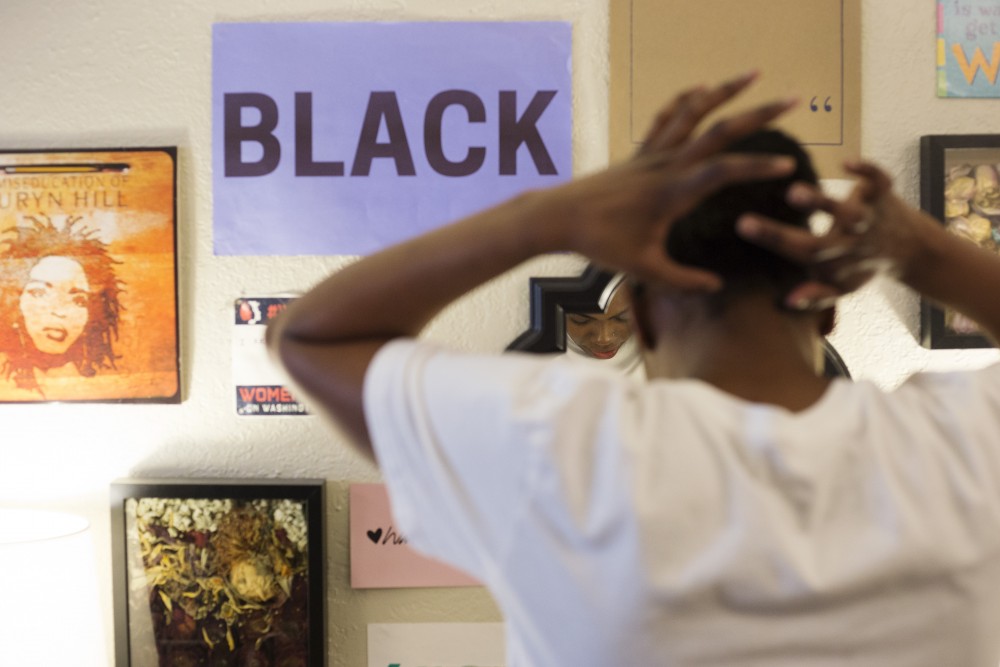Although Nyanna Wright, a third-year student at the University of Minnesota, normally leaves her curly hair out or wears it in a big bun on top of her head, she decided to wear it slicked-back for her Monday interview. She described it as “erring on the side of caution”— something she did to avoid negative stereotypes surrounding textured hair.
Negative stereotypes or attitudes directed toward natural or textured hair is known as hair bias. Many students of color at the University, like Wright, are conscious about hair bias when they prepare for job fairs and interviews, like the fairs the University held last month.
In professional settings, the bias involves the exclusion of textured hair from what many people perceive as professional, raising questions about how employers view ethnicity, culture and race.
“People still see ethnic hair as ‘ethnic hair comes with ethnic attitudes,’ and a lot of employers try and stay away from that,” said Gennise Wilson, the executive office and administrative specialist at the University’s Martin Luther King, Jr. Program.

Although Wilson was never told she needed to change her hair throughout her career, she said she knew the message was implied. Wilson said she knows people who have faced comments like, “Have you ever thought of straightening your hair?” or “You would look so much better with straight hair.”
“There are still environments where it is still seen as professional to come in with straight hair,” Wilson said. “It’s unfortunate, but it’s still there.”
Second-year University student Ramla Mohamud said during trips to hair salons, her sisters were often encouraged to relax or straighten their curly hair. Because she had straighter hair than her siblings, Mohamud said she was spared the suggestions.
The “Good Hair” Study: Explicit and Implicit Attitudes Toward Black Women’s Hair, which was conducted in 2016 by the Perception Institute, issued a survey and implicit association tests to examine perceptions of black women’s hair.
“A majority of participants, regardless of race, show implicit bias against textured hair,” according to the report.
Hair relaxing treatments and straightening products are proof that hair bias exists, said MLK academic advisor Melanie Johnson. When she was interviewed for her job, she said she wore her hair slicked back because of hair bias.
When University student Marcus Johnson-Luther grew out his curly hair past his shoulders, a recruiter told him his hair “looked interesting.”
Johnson-Luther cut his hair short a few months ago. He said since the haircut, it seemed that he was more likely to get called back for an interview. “More [employers] reached out, and I got further into interview rounds,” Johnson-Luther said.
He said that the same companies he had spoken with at job fairs when he had long hair now seemed to show more interest in him. He was sure it was because of the haircut, he said. “Nothing else [had] changed,” he added. “I had the same resume and a [similar] cover letter.”
Wilson said she understands the way she looks at an interview is the way she is expected to look on the first day at work. “If you come in with straight hair for your interview, you can’t show up on the first day of work with your hair curled because it freaks people out — and it shouldn’t be like that, but it takes them aback.”














